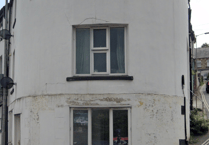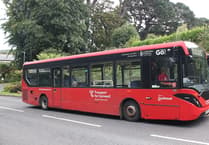PA22/11440: A proposed first floor dwelling extension at a property in Luxulyan has been refused by Cornwall Council’s planners.
Richard Ede applied to construct a first floor extension to his property at Rosemelling Cottage, Rosemelling, Luxulyan.
However, the application was refused by the Council.
The reasons they gave were: “By reason of the inappropriate design, the proposal would result in a visually dominant and incongruous form of development in relation to the host property and its surroundings which would cause an unacceptable degree of harm to the character and appearance of the area.
The proposed development is therefore contrary to Policies 1, 2 and 12 of the Cornwall Local Plan Strategic Policies 2010 – 2030, paragraphs 8, 130 and 134 of the National Planning Policy Framework 2021, and Section 4.2 of the Cornwall Design Guide 2021.
“2 In the absence of an ecological assessment, which should include information on the existing wildlife interest of the site and adjacent land plus the possible impacts on them, the application fails to demonstrate that the proposal would conserve and enhance habitat and biodiversity.
As such, this proposal is contrary to the aims and intentions of Policy 23 of the Cornwall Local Plan Strategic Policies 2010-2030 and the aims and intentions of Section 15 of the National Planning Policy Framework 2021.”
u u u
PA23/01283: A certificate for lawfulness for an existing use of development has been granted by Cornwall Council.
Aaron Teifel applied to the Council to certify a lawful existent use of a chalet building as a residential dwelling.
A certificate of lawfulness is applied for when a property has been used for a purpose for ten or more years without planning permission.
The Council would then certify, if proven, that as the property has been used for the different purpose, it as a lawful usage.
In this instance, Mr Teifel submitted information to the Council in the form of evidence in support of his application which demonstrated that ‘a sufficient breach of planning control has taken place, and the breach has taken place for a continuous period of time with no intervening uses for the duration required to allow a certificate to be issued by the LPA (Local Planning Authority)’. A previous application for a certificate for lawful use or development had been refused in February 2018 by the Council, who said at the time: “It is generally accepted that if the Local Planning Authority have no evidence of their own, or from others, to contradict or otherwise make the applicant’s version of events less than probable, there is no good reason to refuse the application, provided the applicant’s evidence alone is sufficiently precise and unambiguous to justify the grant of a certificate “on the balance of probability”.
“On the basis of the submitted documentation provided and the Local Planning Authority’s own investigations the Local Planning Authority considers that the chalet shown on ‘Location Plan 18/3/18, has not been used for residential purposes for a period in excess of ten years and therefore on the balance of probability is considered not to be lawful by reason of being immune from enforcement action under Section 171b(3) of the Town and Country Planning Act 1990.”
However, five years later, the Council acquiesced, granting the application.
In their new decision notice, they responded: “Based on the documentation provided in support of the application, and having regard to other information available to the authority, and the lack of any contradictory evidence, it is considered that the applicant has discharged their onus of proof, to demonstrate that, on the balance of probability, the residential chalet known as Quackers Farm West Cleave Callington Road has been used independently and continuously has occurred for a period in excess of 10 years and is considered to be lawful by virtue of immunity from enforcement action in accordance with Sections 171B(2) of the Town and Country Planning Act 1990 (as amended).”
In its response to the application, Calstock Parish Council criticised the Council.
They said: “The Parish Council note this information but are very disappointed that Cornwall Council did not take enforcement action at the time in 2018.”
u u u
PA23/01059: Existing external signage, a CCTV camera and an ATM are among the things set to be removed at a Barclays branch set to close in Liskeard.
Barclays have applied to Cornwall Council for the following: “Planning permission for external changes including removal of existing external signage, removal of existing CCTV camera in front elevation, removal of existing ATM and existing window install new glazing in front elevation, existing letter box seal internally in front elevation, removal of existing night safe and infill trap opening with metal plate in Greenbank road side elevation, removal of existing ADT alarm box in Greenbank road side elevation and internal changes including removal of internal counters and all internal furniture” at its branch at The Parade, Liskeard.
Cornwall Council gave the planning permission for the works.
u u u
PA23/00349: An application for a certificate of lawfulness for the proposed construction and use of a single-store timber garden room with a flat roof, attached to the side of the property has been granted in Saltash.
Simon Fry applied to Cornwall Council for the works to his property at The Lodge, Murrayton, St Martin.
Cornwall Council declared that planning permission was not required for the work as it was considered lawful development under the Town and Country Planning Act 2015.
It said: “The proposed development is considered to constitute permitted development under Class A, Part 1, Schedule 2 of The Town and Country Planning (General Permitted development) (England) Order 2015 (as amended).
l continued on page 35





Comments
This article has no comments yet. Be the first to leave a comment.